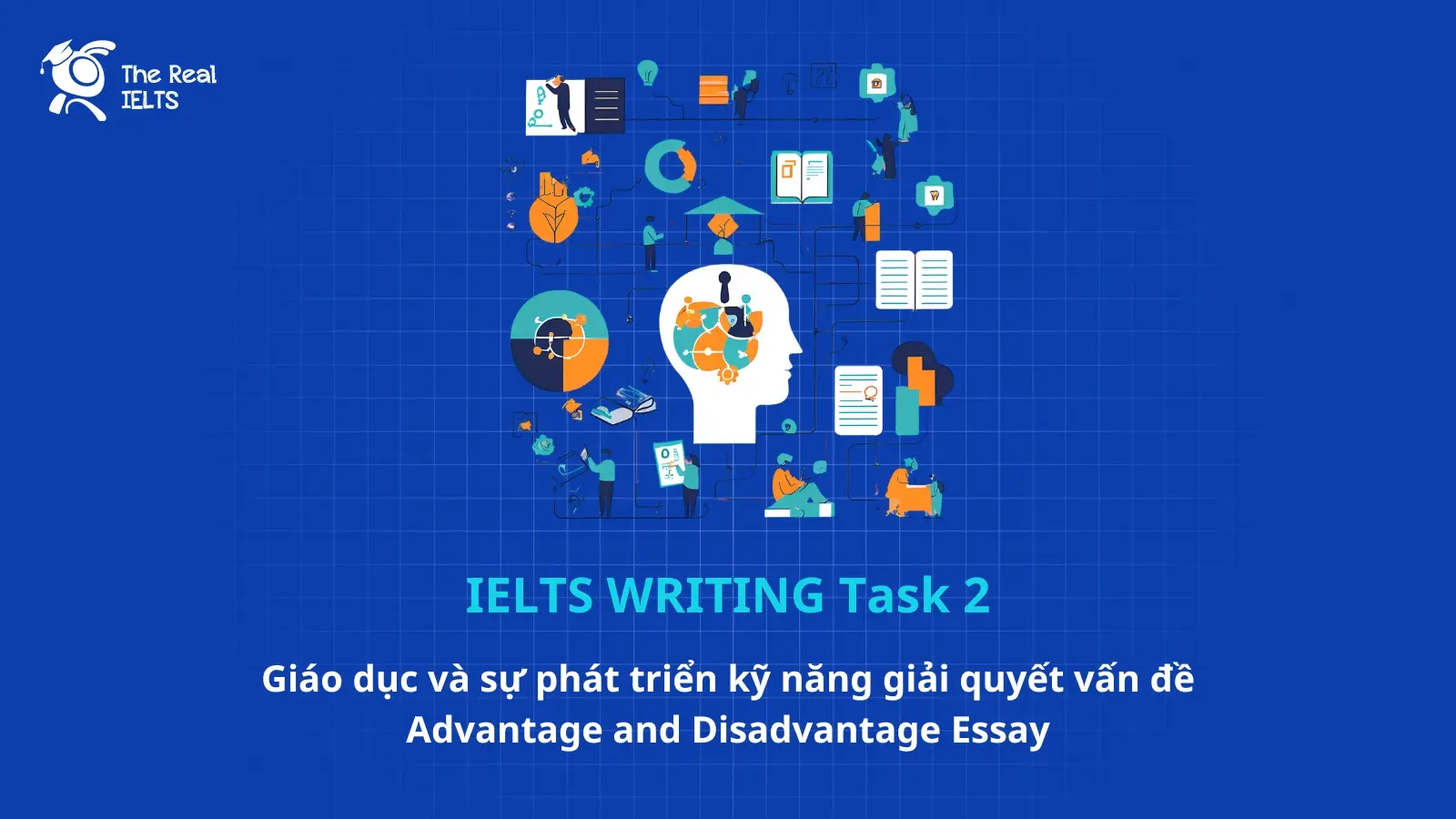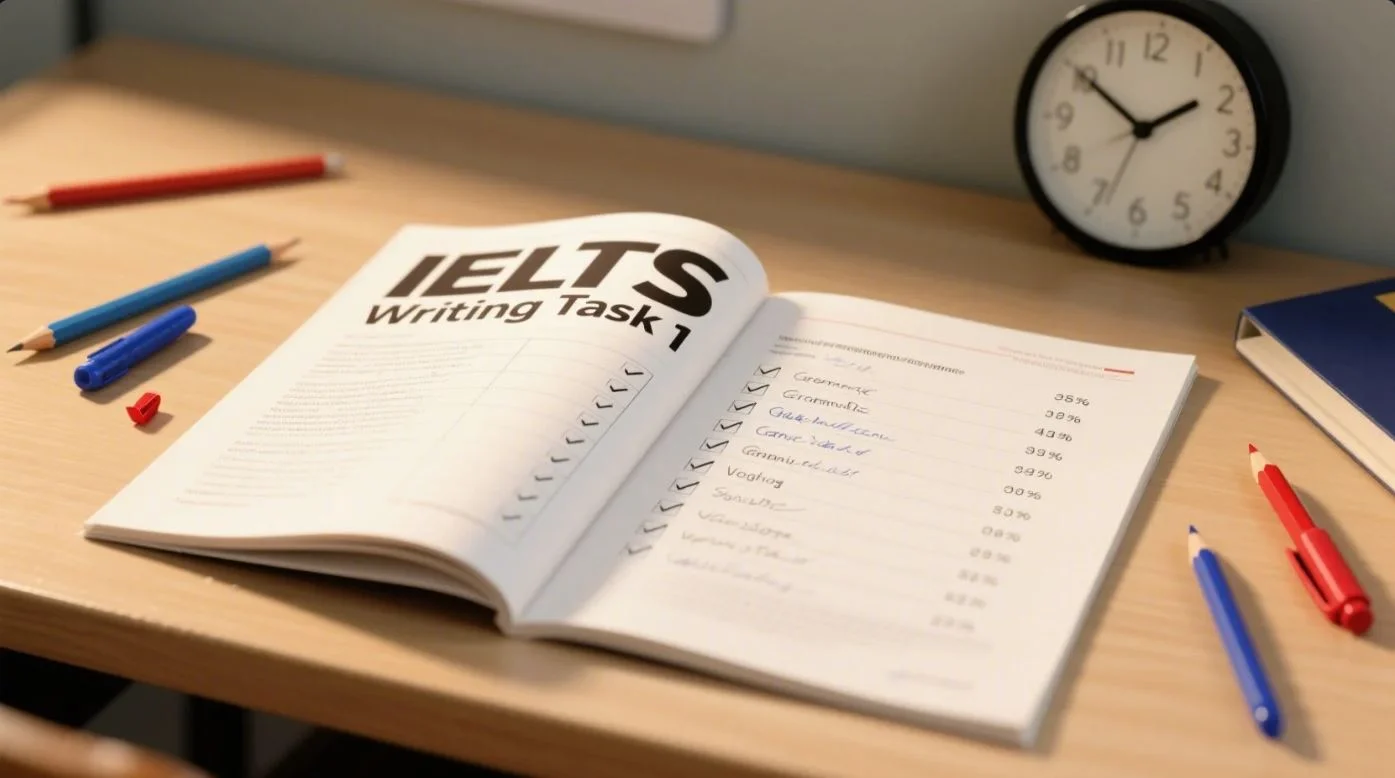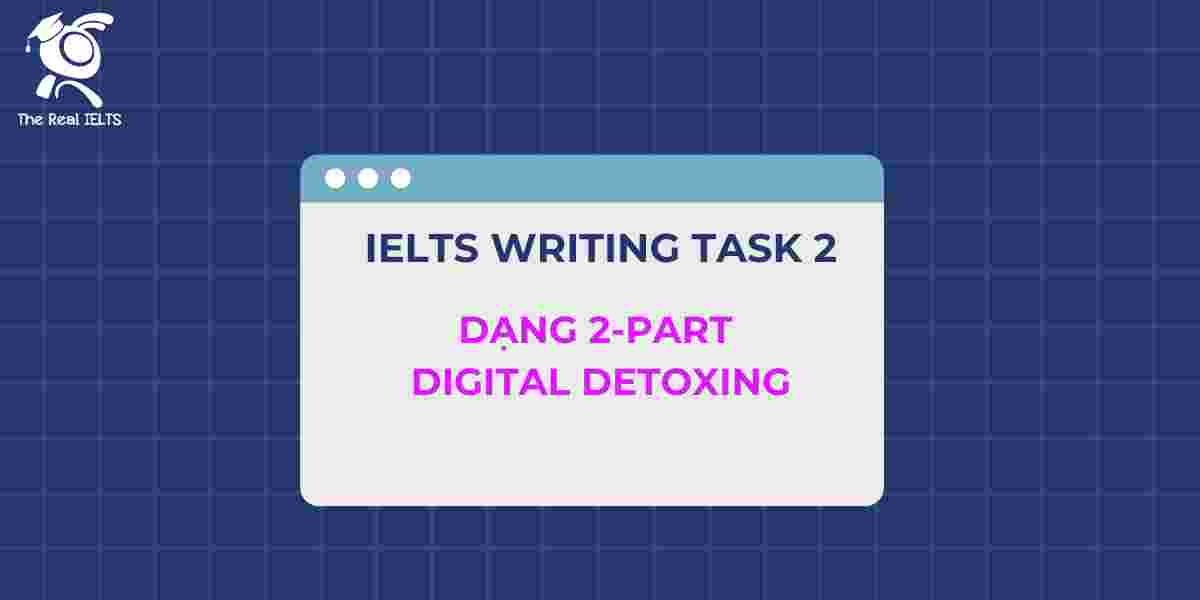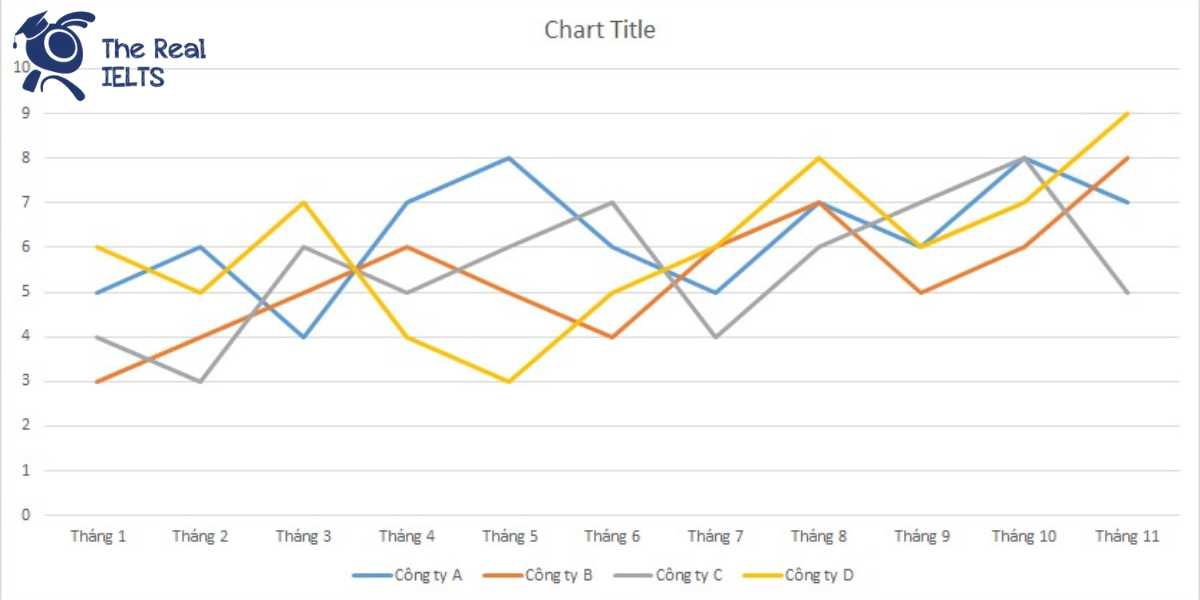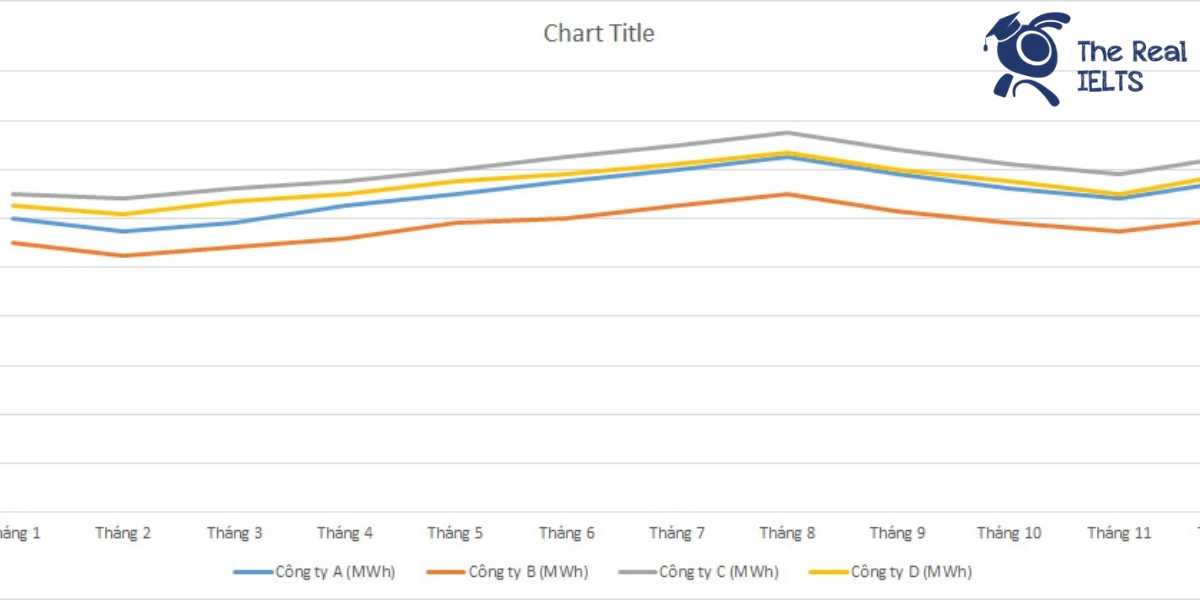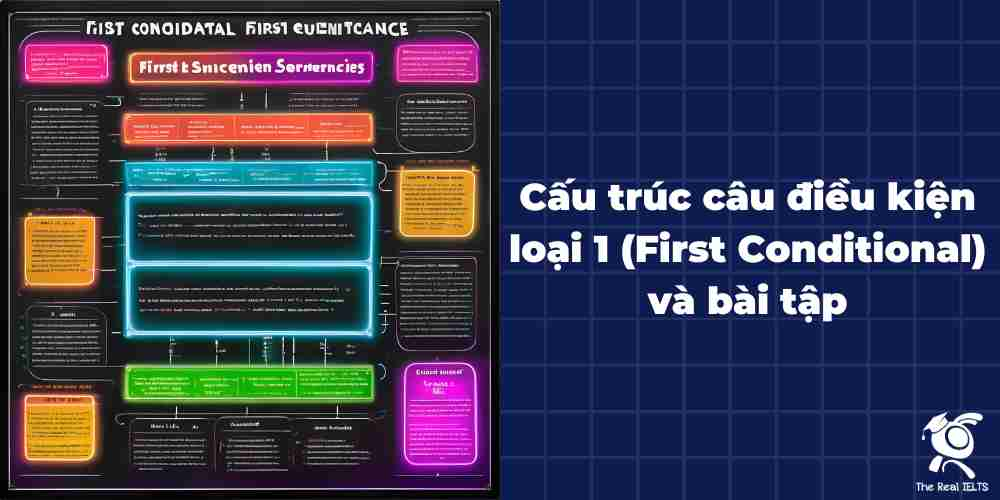IELTS Writing Task 2 thường yêu cầu phân tích lợi ích và hạn chế của giáo dục trong việc phát triển kỹ năng giải quyết vấn đề. Trong khi giáo dục giúp rèn luyện tư duy logic và phản biện, nó cũng có thể khiến học sinh phụ thuộc vào lý thuyết hơn là trải nghiệm thực tế.
Đọc thêm: IELTS Writing Task 2: Giáo dục và sự phát triển kỹ năng giải quyết vấn đề – Discussion Essay.
Đề bài IELTS Writing Task 2: Giáo dục và sự phát triển kỹ năng giải quyết vấn đề – Advantage and Disadvantage Essay
Many people believe that education helps individuals improve their problem-solving abilities. What are the advantages and disadvantages of relying on education for this skill?
Ví dụ 1
Education is widely regarded as a crucial tool for enhancing individuals’ problem-solving abilities. It provides structured learning, exposure to diverse perspectives, and systematic approaches to analyzing challenges. However, some argue that an over-reliance on education might hinder creativity and real-world adaptability. This essay explores the advantages and disadvantages of depending on education to develop problem-solving skills.
Advantages
One significant advantage is that education fosters critical thinking and logical reasoning. Through subjects such as mathematics, science, and philosophy, students learn to analyze problems systematically and apply structured methods to find solutions. This structured approach is particularly beneficial in technical fields where precise problem-solving is essential.
Additionally, education exposes individuals to a wide range of perspectives and knowledge bases. By studying different disciplines, students gain insights into multiple ways of thinking, which can enhance their ability to approach problems from various angles. For example, exposure to social sciences might help individuals understand human behavior, while engineering courses can teach analytical problem-solving techniques.
Moreover, formal education often includes collaborative learning, encouraging teamwork and communication. Many real-world problems require collective brainstorming and cooperation, and education provides opportunities for students to develop these skills through group projects and discussions.
Disadvantages
Despite these benefits, relying too much on education for problem-solving skills has drawbacks. One major issue is the potential lack of real-world adaptability. Educational settings often present problems in a controlled environment with predefined solutions, which may not reflect the complexity and unpredictability of real-life challenges. As a result, individuals may struggle when faced with ambiguous or unconventional problems outside the classroom.
Another disadvantage is that education sometimes emphasizes rote learning over creativity. Many educational systems focus on memorization and standardized testing, which may limit students’ ability to think outside the box. For example, students trained to solve problems using rigid formulas might find it difficult to adapt when confronted with novel or unstructured issues.
Furthermore, education alone may not be sufficient in developing problem-solving skills without practical experience. Many essential problem-solving abilities, such as decision-making under pressure and handling uncertainty, are best acquired through hands-on experiences, such as internships, entrepreneurship, or real-world problem-solving scenarios.
Conclusion
While education plays a crucial role in developing problem-solving skills, relying solely on it has limitations. It provides structured learning, critical thinking, and collaborative experiences, but it may also limit adaptability and creativity in real-world situations. Therefore, a balanced approach that combines formal education with hands-on experience is essential for individuals to develop effective problem-solving abilities.
Ví dụ 2
Education is widely regarded as a crucial factor in shaping an individual’s cognitive abilities, including problem-solving. However, relying solely on education to develop this skill has both benefits and drawbacks.
Advantages
- Structured Learning Approach
Education provides a systematic way of teaching problem-solving techniques, such as critical thinking exercises, mathematical reasoning, and logical analysis. This structured approach ensures individuals develop problem-solving skills in a guided and progressive manner. - Exposure to Diverse Perspectives
In academic settings, students encounter different viewpoints, case studies, and real-world problems, which enhance their ability to analyze situations from multiple angles and devise effective solutions. - Access to Knowledge and Tools
Formal education equips individuals with theoretical knowledge, research methodologies, and technological tools that aid in problem-solving. For example, engineering and business courses teach students how to apply formulas, models, and frameworks to address complex challenges. - Encouragement of Analytical Thinking
Education fosters a habit of questioning, evaluating evidence, and making informed decisions, which are essential components of effective problem-solving. Subjects like philosophy, science, and debate challenge students to think critically and logically.
Disadvantages
- Lack of Real-World Application
Many educational systems emphasize theoretical knowledge over practical problem-solving. Students may excel in academic exercises but struggle to apply their knowledge to unpredictable, real-life situations. - Over-Reliance on Structured Solutions
Schools often promote standardized methods for solving problems, which can limit creativity and adaptability. In reality, many challenges require unconventional approaches rather than textbook solutions. - Variation in Educational Quality
The effectiveness of education in developing problem-solving skills depends on the quality of instruction. In some regions, outdated curricula and rote memorization techniques hinder the development of critical thinking. - Neglect of Experiential Learning
Problem-solving is also learned through hands-on experience, trial and error, and real-life challenges. If individuals rely solely on education, they may miss out on the invaluable lessons that come from personal experience and social interactions.
Conclusion
While education plays a significant role in enhancing problem-solving abilities, it should not be the sole method of development. A balanced approach that combines formal education with real-world experiences, creativity, and adaptability is essential for mastering this skill effectively.
Ví dụ 3
Education plays a crucial role in shaping individuals’ problem-solving abilities. Schools, universities, and structured learning environments are designed to equip students with analytical thinking, logical reasoning, and creativity. However, depending solely on education for developing these skills has both benefits and drawbacks.
Advantages
- Structured Learning and Critical Thinking
Education provides a systematic approach to problem-solving. Subjects such as mathematics, science, and philosophy train individuals to analyze problems methodically, identify patterns, and apply logical reasoning to find solutions. - Exposure to Diverse Perspectives
Academic environments expose students to a variety of viewpoints, case studies, and real-world scenarios. This broadens their ability to assess problems from multiple angles, making them more adaptable and open-minded. - Access to Expert Knowledge and Resources
Schools and universities offer access to experienced teachers, mentors, and research materials. These resources provide students with tested methodologies and frameworks for tackling complex issues efficiently. - Development of Soft Skills
Education fosters teamwork, communication, and collaboration, which are essential for solving problems in professional and personal settings. Group projects, debates, and discussions enhance individuals’ ability to approach problems collectively.
Disadvantages
- Lack of Practical Experience
Many educational systems focus heavily on theoretical knowledge rather than hands-on application. As a result, students may struggle to apply what they have learned in real-world situations that require adaptability and quick decision-making. - Over-Reliance on Structured Thinking
Formal education often emphasizes structured problem-solving techniques, which may limit creativity and out-of-the-box thinking. In contrast, real-life challenges often require unconventional approaches that are not always taught in schools. - Standardized Assessments May Hinder Growth
Many education systems rely on standardized tests that prioritize memorization over critical thinking. This can lead to a rigid mindset, where students focus on passing exams rather than developing true problem-solving skills. - Limited Focus on Emotional Intelligence
Problem-solving is not just about logic and analysis; it also involves emotional intelligence, resilience, and intuition. Traditional education may neglect these aspects, leaving individuals unprepared for challenges that require interpersonal skills and emotional regulation.
Conclusion
While education provides a strong foundation for problem-solving, it should not be the sole avenue for developing this skill. Practical experience, independent learning, and exposure to real-world challenges are equally important. A balanced approach—combining formal education with experiential learning—ensures individuals become well-rounded problem solvers in all aspects of life.
Ví dụ 4
Introduction
Many people believe that education plays a crucial role in improving problem-solving abilities. While formal education can certainly provide a strong foundation for developing these skills, there are both advantages and disadvantages to relying on education alone for this purpose. This essay will explore the advantages and disadvantages of using education as the primary means for improving problem-solving abilities.
Body Paragraph 1: Advantages of Relying on Education for Problem-Solving Skills
One of the main advantages of relying on education to improve problem-solving abilities is that it offers a structured approach to learning. In formal educational settings, students are taught specific techniques for analyzing and solving problems, often through subjects like mathematics, science, and logic. For example, solving complex mathematical problems or conducting scientific experiments encourages students to think critically and develop systematic approaches to problem-solving.
Additionally, education provides access to experienced instructors and a range of resources, which can help individuals learn efficient strategies for tackling problems. Educators are trained to teach students how to break down problems into manageable parts and use logical reasoning to arrive at solutions. This guidance can significantly enhance a student’s ability to solve problems both in academic settings and in their future careers.
Body Paragraph 2: Disadvantages of Relying on Education for Problem-Solving Skills
However, relying solely on education for developing problem-solving abilities has its limitations. One major disadvantage is that formal education often focuses on theoretical knowledge rather than practical, real-world problem-solving. While students may learn problem-solving techniques in the classroom, they may struggle to apply these skills when faced with unpredictable challenges in everyday life or work environments. Real-world problems often require creative thinking, adaptability, and the ability to handle ambiguity—skills that may not be emphasized in traditional educational settings.
Moreover, education systems in some countries may overemphasize rote memorization and standardized testing, which can discourage critical thinking and problem-solving. When students are trained to focus on memorizing facts and following rigid formulas, they may not develop the flexible thinking necessary to solve novel problems. Without opportunities for hands-on, experiential learning, students may find it difficult to translate theoretical knowledge into practical solutions.
Body Paragraph 3: The Need for a Balanced Approach
To overcome these disadvantages, it is essential to combine education with real-world experiences. While education can provide the foundational knowledge and strategies for problem-solving, it is important for individuals to also engage in practical experiences that allow them to apply these skills in real-life situations. For example, internships, volunteer work, and hands-on projects enable students to tackle real problems and develop their critical thinking abilities in dynamic environments. This balance between education and experience can produce individuals who are both knowledgeable and adaptable in problem-solving.
Conclusion
In conclusion, while education plays a crucial role in improving problem-solving skills by providing structured learning and expert guidance, it has limitations in preparing individuals for real-world challenges. By combining formal education with practical experiences, individuals can develop a more well-rounded approach to problem-solving, making them better equipped to handle both academic and real-life situations.
Ví dụ 5
Education is often seen as a crucial tool in developing problem-solving abilities. Through structured learning, individuals acquire analytical thinking, logical reasoning, and creativity, which are essential for tackling complex issues. However, some argue that over-reliance on formal education may have its drawbacks. This essay explores both the advantages and disadvantages of depending on education for problem-solving skills.
Advantages
One of the primary benefits of education is that it provides individuals with a systematic approach to problem-solving. Schools and universities teach critical thinking techniques, such as analyzing situations, breaking down problems, and evaluating possible solutions. For instance, subjects like mathematics, science, and philosophy encourage logical reasoning, which is valuable in real-life decision-making.
Moreover, education exposes individuals to diverse perspectives, fostering adaptability and creativity. Group discussions, case studies, and collaborative projects allow students to explore different viewpoints, enhancing their ability to devise innovative solutions. For example, business schools often use real-world scenarios to train students in problem-solving, preparing them for challenges in professional environments.
Another key advantage is that education equips individuals with specialized knowledge that can be applied to solve problems effectively. Fields such as engineering, medicine, and law require structured training to develop problem-solving expertise. Without education, individuals may struggle to handle industry-specific issues efficiently.
Disadvantages
Despite its advantages, relying solely on education for problem-solving skills has certain drawbacks. One major limitation is that formal education often emphasizes theoretical knowledge over practical application. Many students excel in academic settings but struggle to apply their learning to real-world problems. For instance, graduates may find it difficult to navigate workplace challenges due to a lack of hands-on experience.
Additionally, traditional education systems may discourage independent thinking. Many institutions prioritize memorization and standardized testing, which can limit creativity and critical analysis. Students who are accustomed to following structured guidelines may struggle when faced with unpredictable, real-life situations requiring unconventional solutions.
Furthermore, problem-solving is not solely developed through education but also through life experiences. Individuals who rely exclusively on academic learning may lack resilience and adaptability when dealing with challenges outside the classroom. Entrepreneurs, for example, often succeed by learning from failures and practical experiences rather than through formal education alone.
Conclusion
In conclusion, while education plays a significant role in enhancing problem-solving skills by providing structured training, diverse perspectives, and specialized knowledge, it also has limitations. Theoretical learning may not always translate into practical expertise, and excessive reliance on formal education can hinder independent thinking. Therefore, a balanced approach that combines academic learning with real-world experience is essential for developing strong problem-solving abilities.
Ví dụ 6
Education is widely regarded as a fundamental tool for enhancing problem-solving abilities. Schools and universities equip individuals with analytical skills, structured thinking, and exposure to diverse perspectives, all of which contribute to their ability to tackle complex issues. However, relying solely on formal education for developing this skill has both benefits and drawbacks.
Advantages
- Structured Learning Environment
Formal education provides a well-organized curriculum that systematically introduces students to problem-solving techniques, such as logical reasoning, critical thinking, and mathematical analysis. These structured methods help learners develop a strong foundation in addressing challenges. - Exposure to Diverse Problems
Educational institutions expose students to a wide range of subjects, from science and mathematics to humanities and social sciences. This interdisciplinary approach fosters adaptability and enables individuals to apply their knowledge to real-world scenarios. - Guidance from Experts
Teachers and professors play a crucial role in mentoring students and refining their problem-solving skills. Through feedback, discussions, and interactive learning methods, educators help students approach problems from multiple angles. - Collaboration and Teamwork
Many educational settings encourage group projects, debates, and discussions, which allow students to work collaboratively to find solutions. This enhances their ability to analyze problems collectively and develop practical solutions in team environments.
Disadvantages
- Lack of Real-World Application
Many educational programs focus on theoretical knowledge rather than practical application. As a result, students may struggle when faced with real-life challenges that require hands-on experience rather than textbook solutions. - Over-Reliance on Structured Thinking
Education often emphasizes structured methods of problem-solving, which can limit creativity and independent thinking. Some of the best solutions arise from unconventional approaches that may not be taught in a classroom setting. - Limited Adaptability to Unpredictable Situations
In many cases, real-world problems are complex and do not have clear-cut solutions. Relying solely on education may not prepare individuals to handle ambiguous or rapidly changing situations that require intuition and experience. - Variation in Educational Quality
Not all educational systems are equally effective in fostering problem-solving skills. Factors such as outdated curricula, lack of resources, and rigid teaching methods can hinder the development of critical thinking and adaptability.
Conclusion
While education is an essential tool for developing problem-solving abilities, it should not be the sole source of this skill. A combination of formal education, hands-on experience, and independent thinking is necessary to navigate complex real-world challenges effectively. Encouraging creativity, practical exposure, and lifelong learning can help individuals become well-rounded problem solvers.
Ví dụ 7
Introduction
Education is widely regarded as a key factor in enhancing various life skills, including problem-solving. Many believe that structured learning can significantly improve an individual’s ability to tackle challenges. However, there are both advantages and disadvantages to relying on education as the primary source for developing problem-solving skills.
Advantages
- Systematic Learning
Education often provides a structured environment where problem-solving techniques can be taught in a step-by-step manner. This ensures that individuals gain a clear understanding of how to approach complex issues. For instance, subjects like mathematics and logic encourage critical thinking and analytical skills, which are essential in problem-solving. - Access to Expert Guidance
In educational settings, students have access to teachers, mentors, and resources that help guide them in solving problems. These experts provide frameworks and strategies that allow individuals to approach problems from multiple perspectives, often enhancing their problem-solving abilities. - Diverse Perspectives
Formal education exposes individuals to a wide range of subjects, encouraging them to solve problems in various domains. This broad exposure helps individuals develop a versatile problem-solving approach, as they learn to adapt strategies to different contexts. - Collaboration and Teamwork
Many educational environments emphasize group work and collaboration, which can be invaluable in improving problem-solving skills. Working with peers on projects or assignments encourages the sharing of ideas, learning from others, and refining problem-solving techniques through collective effort.
Disadvantages
- Over-reliance on Theory
Education often focuses on theoretical knowledge and structured approaches to problem-solving, which might not always translate well to real-world scenarios. In some cases, individuals may struggle when faced with problems that require more creativity and flexibility, which aren’t always emphasized in traditional education. - Limited Practical Experience
While education provides valuable knowledge, it may lack the hands-on experience necessary for honing practical problem-solving skills. Real-life challenges often require more adaptive and spontaneous solutions that education alone may not adequately prepare individuals for. - One-Size-Fits-All Approach
Education systems are generally designed to cater to a wide range of students, which can sometimes lead to generic solutions. Not all individuals may learn in the same way, and education’s standardized approach may not always help people develop personalized problem-solving strategies that align with their unique thinking styles. - Stress and Pressure
The competitive nature of modern education can sometimes hinder problem-solving abilities. In high-pressure environments, students might focus more on achieving the “right” answer rather than exploring innovative solutions, which can limit the development of creative problem-solving skills.
Conclusion
While education undoubtedly plays a crucial role in improving problem-solving abilities by providing structured learning and access to expert guidance, it is not without its limitations. Real-world experiences, creativity, and adaptability are just as essential for truly mastering problem-solving. Balancing education with practical experience and a flexible approach can lead to the most effective development of this vital skill.
Ví dụ 8
Education plays a vital role in enhancing problem-solving abilities, but relying on it alone for this skill comes with both benefits and drawbacks. Let’s break them down:
Advantages:
- Structured Learning: Education provides a structured approach to learning, offering frameworks and methodologies that can improve critical thinking and problem-solving. Students are taught how to break down problems into manageable parts and apply systematic techniques to find solutions.
- Diverse Perspectives: Through exposure to various subjects and disciplines, education encourages individuals to look at problems from different angles. It enhances creativity by promoting cross-disciplinary thinking, which is essential for solving complex issues.
- Development of Analytical Skills: Problem-solving requires strong analytical skills, which are nurtured through education. By working through assignments, tests, and case studies, students hone their ability to evaluate situations, interpret data, and derive solutions.
- Access to Knowledge and Resources: Education provides individuals with access to vast amounts of information, tools, and resources that can be useful in solving problems. With this knowledge base, people are better equipped to tackle challenges in real-world scenarios.
Disadvantages:
- Over-reliance on Theory: While education equips individuals with theoretical knowledge, it may not always translate to practical problem-solving in everyday life. Some individuals might struggle to apply what they’ve learned to real-world situations.
- Limited Exposure to Real-life Challenges: In educational settings, problems are often controlled and hypothetical. They may not accurately reflect the unpredictable and multifaceted nature of problems faced in real-life contexts, leaving students unprepared for such situations.
- Pressure and Stress: Education can sometimes create pressure to conform to standardized ways of solving problems, discouraging innovative or unconventional thinking. Students might focus more on getting the “right” answer rather than exploring different solutions.
- Lack of Emotional Intelligence Development: Education often emphasizes cognitive skills over emotional intelligence. Problem-solving in life requires understanding human emotions and social dynamics, something that formal education might not fully address.
In conclusion, while education is crucial in developing problem-solving abilities, it should be complemented with real-world experiences, critical thinking, and emotional intelligence to fully equip individuals with the skills needed to navigate complex problems effectively.
Ví dụ 9
Relying on education to improve problem-solving abilities can offer both benefits and drawbacks. Let’s explore some of these.
Advantages:
- Structured Learning: Education provides a structured environment where individuals can systematically learn and apply problem-solving techniques. Through subjects like mathematics, science, and even philosophy, students learn to break down complex issues into manageable parts.
- Critical Thinking Development: Education encourages the development of critical thinking, allowing individuals to analyze problems from multiple angles. This skill is invaluable not only in academic settings but also in real-world scenarios.
- Access to Resources: Formal education provides access to vast resources, including textbooks, research materials, and expert guidance. This wealth of knowledge can help individuals understand problems more deeply and find innovative solutions.
- Exposure to Diverse Problems: Education exposes students to a wide range of problems, helping them develop flexibility in their approach. This broadens their ability to apply different problem-solving methods in varying situations.
Disadvantages:
- Limited Real-World Application: While education provides theoretical knowledge, it may not always equip individuals with the practical skills needed to solve problems in real-world settings. Often, educational environments are controlled, and problems are less ambiguous than in daily life.
- Overemphasis on Rote Learning: In some educational systems, there is too much focus on memorization and standardized testing. This approach can limit creativity and the ability to think outside the box when tackling complex problems.
- One-Size-Fits-All Approach: Educational methods may not always cater to individual learning styles or specific problem-solving strengths. Some individuals may find that traditional education does not work well for them in fostering problem-solving abilities.
- Dependency on Authority: Some students may rely too heavily on teachers or textbooks for solutions, rather than developing their own independent problem-solving abilities. This dependency can hinder the development of self-reliance and innovation.
In conclusion, while education certainly plays a key role in enhancing problem-solving skills, it is not a one-size-fits-all solution. Balancing formal education with real-world experience and independent thinking is essential for developing strong problem-solving abilities.


